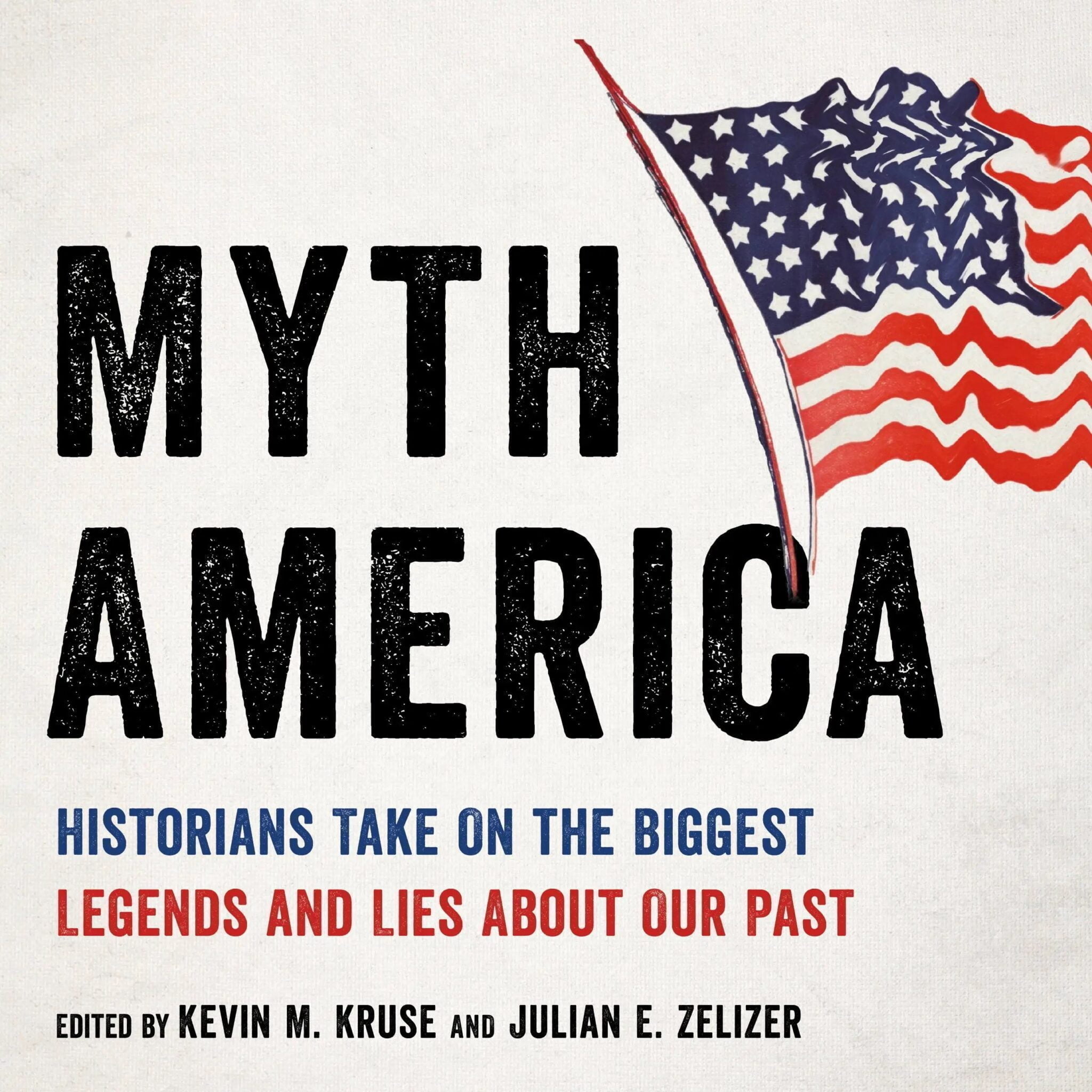Myth America is a comprehensive, ambitious, and successful collection of essays on the power of misinformation in American history from the colonial era to the present day. Although it is a collection of academic works, the book makes the important point that understanding history is not a simple, clinical exercise for the classroom. As the authors note in the introduction, the “clumsy misapplications of history” can be the foundation for disasters. (4) The lead up to the Iraq War may be one case in point, where the official story regarding terrorism led to the 2003 invasion and quickly unraveled as the United States became bogged down in a vicious insurgency that dragged on for years and cost thousands of lives.
But the same “clumsy misapplications of history” might have a more routine and potentially more damaging role in our daily lives. I think about that when I drive home from Kutztown University and see Confederate flags peppering the Pennsylvania landscape and wonder if people understand that my state fought for the Union. Or why it did.
We need this book.
As a country, we have serious deficits in our understanding of history. A 2020 Pew Research Center poll about the Holocaust noted that only 45% of respondents knew how many Jews died as a result of Nazi genocide. Three years later, in a survey done by the American Jewish Committee, that number was 53% among people over 18 years old, an improvement, but also something that illustrates an important gap in knowledge.
Unfortunately, in the ongoing scrum over American education policy, history often gets lost or damaged in the collision. Standardized testing focuses on math and reading skills — both critical — but does not devote enough attention to history as a discipline. When educators enter the public domain, they very quickly become bogged down in sometimes vicious political rancor. The ongoing controversy over the 1619 Project and, more recently, the decision by Florida to reject an Advanced Placement course on African American Studies are cases in point.
Myth America covers a broad array of topics. Some are directly related to foreign policy (American Exceptionalism, America First). Other topics speak to American politics and policy (American Socialism, “The Border,” The New Deal, the “Southern Strategy,” Voter Fraud). Still others (“The Magic of the Marketplace,” “White Backlash,” “The Good Protest,” “Family Values Feminism”) add important commentary to contemporary social issues.
As each chapter unfolds, the respective authors move through a spectrum of necessary responses to commonly held tropes, misunderstandings, or deliberate deceptions that affect our understanding of history. One essay, for example, addresses “Founding Myths,” specifically which of the Framers—George Washington or James Madison—most influenced our constitution. It was Washington, according to Akhil Reed Amar, a Professor of Law and Political Science at Yale University. Amar goes on to challenge Charles Beard’s well-known argument that the Constitution was constructed by a landed oligarchy driven by self-interest rather than Enlightenment principles.
All of this is well and good if you are a professional historian or someone with a layperson’s interest in colonial America. Luckily for the reader, Myth America spends most of its time on serious consequences resulting from a warped understanding of our past. There are many standouts among these offerings. Chapter Five: America First is a standout. Sarah Churchwell, a Professor of American Literature at the University of London provides a long view of “America First,” its evolution, and application in terms of politics and policy. Despite claims to the contrary, the whole idea, according to Churchwell, recalls “an enduring ethno-nationalist dog whistle.” (70) She is right and goes on to explain the potent influence of nativism in America, from the anti-Catholic conspiracies popular in the nineteenth century, to debates about “hyphenated Americans” (read: immigrants) at the outset of World War I, to the anti-Semitism that roiled through the country after the war, to Pat Buchanan’s tirades against the “New World Order” in the nineties. Given the proper perspective and context, “America First” is not a simple story about modern-day patriotic citizens.
READ: Teach Black History – Don’t Ban It
In terms of pressing issues in need of historical clarity, Myth America saves the best for last. In the chapter simply titled “Voter Fraud,” Carol Anderson, a Professor African American Studies at Emory University, establishes a clear relationship between deliberate misinformation and public policy. False claims regarding voter fraud have a deep and disturbing history in the United States. Anderson dwells on this practice after the Civil War, where Southern states used it to disenfranchise African American voters for decades. However, importantly, this practice did not die in the unreconstructed South. Variations on the Republican “Southern Strategy” have been ongoing in the twentieth century for more than fifty years. They include voter suppression campaigns under Operation Eagle Eye (1964), the so-called “Ballot Security Task Force” employed in New Jersey in 1980, and illegally purged Florida voter rolls in 2000. The endless claims resulting from the 2020 presidential election are part of a long and consistent pattern, especially when you consider the fact that, after the 2020, Republicans in forty-eight states submitted almost four hundred voter suppression bills. (300)
Although many of the stories covered in Myth America are about Republicans, there are points in time when both of our major parties are culpable for acting on myths. This path is clear regarding border policy and the perceived dangers posed by immigrants. As Geraldo Cadava notes: “Today, liberals also call the borderland a dangerous and threatening space when conservatives force them to preen their patriotic, America-first feathers and say as loud as they can that they, too, care about defending the United States.” (102) Bill Clinton doubled the amount spent on border enforcement during his presidency. (65) Although Barack Obama deserves credit for granting “Dreamers” status to millions of migrants, his administration also saw a significant increase in border security funding, arrests, detentions, and deportations. (65) Recent border policy reflects many points of continuity between Biden and Trump, particularly over Title 42, a COVID provision used to block immigration to the United States, according to Human Rights Watch.
I would recommend Myth America for the simple reason that we have an obligation to understanding the truth. Part of this comes from the basic need for due diligence or, as the chapter on the Reagan Revolution, notes: “history is more complicated than the term suggests.” (285) I can understand this as a teacher, someone possessed of an enormous responsibility to my students, who will sometimes accept what I say by virtue of my job title. I keep that responsibility constantly in mind as I continue reading and revising my course content, not resting on my laurels or the experience granted by 28 years in the classroom.
I tell my future teachers to do the same. It will be our responsibility to help reweave our public debate in terms of what history can offer. Our job will be to move past click bait, memes, pop culture tropes, talk shows, and YouTube commentary that tempt us away from informed discussion.
In fact, we should all be doing it, not just the teachers. Myth America would be a good place to start.






